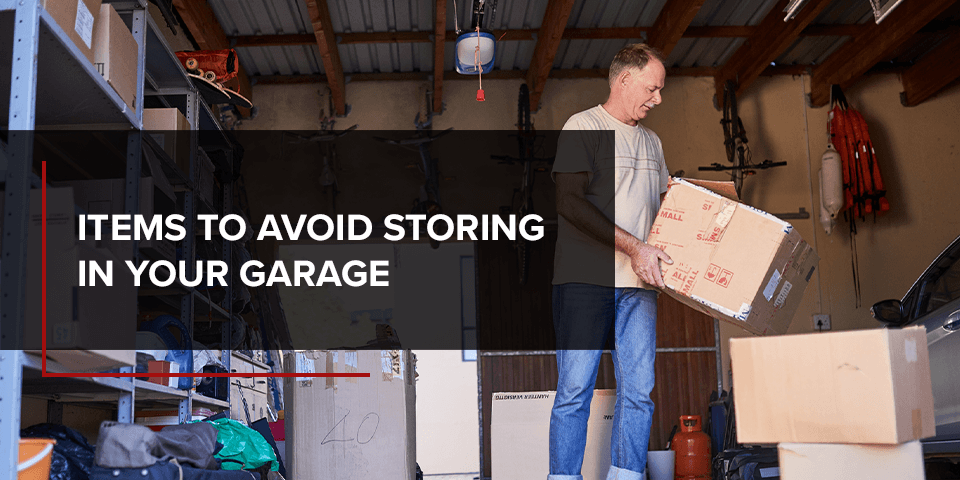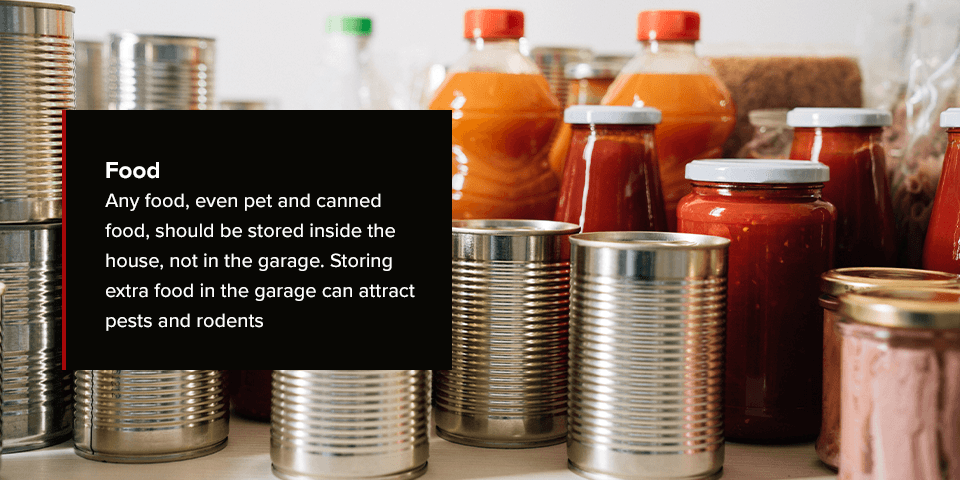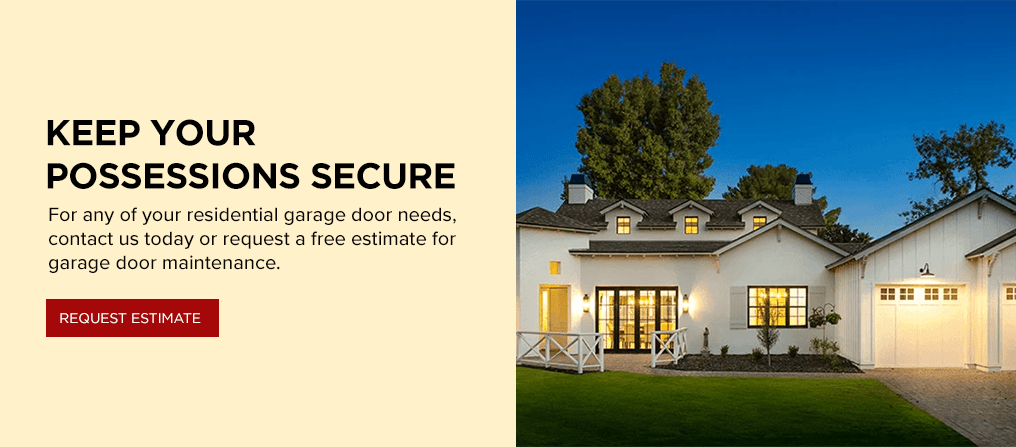Items to Avoid Storing in Your Garage
Having a garage is a big convenience when you can use it to store more than just your car. While the extended space allows you to stash and organize items you can’t fit in your home, some possessions can’t survive in the garage. You should keep these items in your home instead of this area.
While a garage’s extra storage room is helpful, you want to make sure your personal property doesn’t fall victim to the elements of the garage, such as fluctuating temperatures, pests and moisture.
Take a detailed inventory after reading this list of items not to store in your garage and see if you should move any of your possessions inside your home.
12 Items Not to Store In Your Garage
You want to keep your items and your garage in good condition. Taking the time to find items you should not keep in a garage is a great way to maintain your belongings and declutter and donate anything you don’t need. Move possessions like these into your home. The following are items of what not to store in your garage:
1. Old Photos
Keep your cherished printed photos out of the garage. The garage’s humidity and fluctuating temperatures can ruin pictures, causing them to stick together or lose their color. Store them in a temperature-controlled, dry place inside your home instead. As a bonus, it’s easier to flip through your cherished memories when you keep them nearby.
2. Propane Tanks
Propane tanks can be dangerous in a garage if they leak or aren’t secure. A propane tank with a leak can easily ignite when introduced to a spark from sources like starting your car or working with certain tools. Protect your garage, your home and your household members by storing propane tanks appropriately.
3. Wood
Anything made of wood — including furniture, firewood and other important belongings — can become damaged in the garage. The moisture and extreme temperatures can cause the material to expand and contract. This process can alter any wood you store in this space.
Keeping firewood in the garage can also attract pests, like damage-causing termites. Have only the amount of firewood you need in the garage to prevent pests from finding their way into your home.
4. Old or Delicate Clothing
You need to find a place to store your clothing that’s not of use right now, from seasonal pieces to cherished clothing like wedding dresses or baby clothes. Keeping these items in the garage can attract pests that will ruin the pieces. The heat and humidity can also damage or discolor your clothing. Pack your clothes away in secured storage inside of your home to preserve their condition, whether you’ll be wearing them later in the year or keeping them for the memories.
5. Paint
It’s common to find leftover paint cans in garages. But storing paint in a garage for a long time can ruin it. The fluctuating temperatures can cause the paint to separate and even change color. Your paint then becomes unusable. Instead, store paint cans in a temperature-controlled room that is safe from household members like young children or pets.
6. Food
Any food, even pet and canned food, should be stored inside the house, not in the garage. Storing extra food in the garage can attract pests and rodents. Extreme temperatures can cause the food to become inedible or spoil. Instead, store food in sealed containers in the kitchen.
7. Wine
The garage is the last place you want to keep your wine. Similar to food, the temperature guidelines for wine are crucial to follow. The conditions can alter the wine if it’s too hot or cold, affecting its taste, aroma and appearance. Store wine inside your home to prevent it from spoiling.
8. Cardboard
Avoid using cardboard boxes as storage containers in your garage. Rodents can easily chew through cardboard and make their way to whatever is inside. Also, like photos, cardboard boxes require drier conditions than what’s in your garage. Sturdy storage containers with reliable closures are best for storing items in this space.
9. Important Documents
You should keep all important documents inside of your home and away from moisture. The paper can also attract termites and other pests, which cause more damage.
10. Books
Avoid keeping books in the garage even if you’re running out of room on your bookshelf. The humidity out there can damage books’ pages and bindings. Store extra books in a closet inside your home to keep them safe.
11. Refrigerator or Freezer
In our region, the extreme temperatures in the garage can make a refrigerator or freezer work harder than necessary to maintain the internal temperature. Many households keep a garage refrigerator to hold spare food or drinks, but the amount of extra power the appliance uses can decrease its functionality over time.
12. Electronics
Storing electronics in the garage may not be the best idea, as your garage can go from sweltering hot in the summer to freezing cold in the winter. High heat can cause internal components to overheat, while freezing temperatures can cause condensation and moisture buildup, potentially damaging sensitive electronic parts.
Garages are notorious for being damp and humid. The downside is that moisture can seep into electronic devices, leading to corrosion, short-circuiting and other damage.
Rodents love to chew on wires and cables, which can result in costly damage and even pose a fire risk. Creepy crawlies like spiders and cockroaches can also find their way into your electronics and make them their new cozy home, causing damage in the process.
What Should You Store in Your Garage?
While you should avoid storing certain possessions in your garage, some belongings are fine to stay out there. For extra protection against harsh climates, get a professional to seal your garage and have a high-insulated garage door. This will prevent the atmosphere outside from affecting the temperature and environment within your garage. It will also increase your garage storage safety. After you declutter your garage and make more space, you can find places to keep some new items:
- Your vehicle: The purpose of your garage is to keep your vehicle safe and protect it from outside elements. Now that you’ve made more space in your garage, you have room to park your car.
- Tools: Many people use their garage as a workplace for maintenance on their vehicles or other projects. You can store tools in your garage by adding a workbench or shelves to organize them.
- Gardening and yard supplies: Shovels, rakes and other essential gardening tools are suitable to keep in the garage. Hang them on the walls to save on storage space and prevent clutter.
- Outdoor toys: Sports equipment, pool floaties, patio furniture and any outdoor activity gear that can withstand the outdoor elements will be fine in the garage.
- Household supplies: Buying household supplies in bulk or stocking up on nonperishable food items is a smart way to save money and reduce trips to the store.
- Seasonal items: You can also keep seasonal items like holiday decorations or winter gear like snow shovels in the garage so they’re easily accessible.
Safe Storage Habits for Your Garage
The garage can quickly become a catch-all space for storing various items, but effective organization is key to keeping it functional and accessible. Here are some practical tips on how to store items in your garage:
- Categorize and group similar items: Start by categorizing and grouping similar items together. For example, keep all your tools in one area, sports equipment in another and seasonal items in a designated spot. This will make it easier to locate items and prevent clutter.
- Utilize storage solutions: Invest in storage solutions such as shelves, cabinets, pegboards and hooks to keep your items organized and off the floor. Store frequently used items at eye level or within easy reach.
- Use clear containers and labels: Use clear plastic containers with lids to store smaller items like nails, screws or small tools. Label the containers for easy identification. This will save you time and effort in searching for items and help you keep everything neat and organized.
- Regularly declutter: Regularly go through your garage and declutter unneeded or unused items. Donate or dispose of broken, outdated items that no longer serve a purpose.
- Create traffic flow: Consider traffic flow in your garage when organizing items. Keep frequently used items near the entrance for easy access, and ensure clear pathways for moving around. Avoid blocking doors, windows or electrical panels with stored items.
- Maintain a cleaning routine: Regularly clean your garage to keep it tidy and free of dust, dirt and debris. Sweep or vacuum the floor, wipe down shelves and cabinets and keep tools and equipment clean and well-maintained.
- Get a high-quality door: A properly insulated and sealed garage door can make a huge difference to the environment and security of your garage. A good garage door will enable safe storage in a garage.
Keep Your Items Safe Behind Your Garage Door
Now that you know what you can and can’t store in your garage, keep your possessions secure with a new garage door or services from A Better Door Co., Inc. We’re proud to provide the highest quality installations, repairs and preventative maintenance to residents in Suffolk and Nassau counties.
For any of your residential garage door needs, contact us today or request a free estimate for garage door maintenance.




